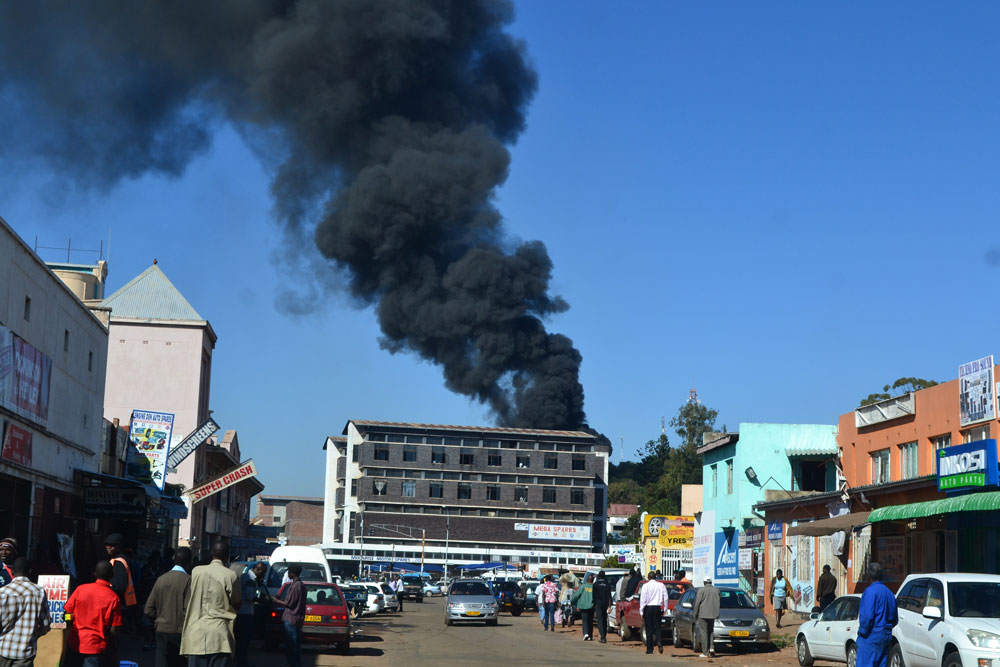
The coming in of the US dollar in 2009 witnessed an increase in the buying power for quite a number of citizens of this country. Locals could compete for exchange rates with any country in the world. As such owning a car became a major priority to the majority of Zimbabweans, who never dreamt of ever owning one before.
guest column: Peter Makwanya
For that reason, Zimbabwe has suddenly become an increasingly motorised state and the people continue to show unlimited hunger for acquiring these prized possessions. The hunger for wheels for the locals has seen citizens of this country making significant carbon footprints towards greenhouse gas emissions.
While the South-East Asian and some European countries are getting rid of their used cars and dumping them on the shores of the African continent, it has become some sort of blessing to this part of the world, but with a heavy environmental price. According to the World Health Organisation (WHO), by 2035, transport is expected to become the single largest greenhouse gas emitter accounting for 46% of the global emissions.
While the South-East Asian countries like Japan and South Korea relieve themselves of the burden of how to deal with large volumes of used vehicles, many African countries have welcomed this hidden gesture with open arms and glee. But it is the African continent which is going to feel the bite of the carbon emissions pinch, more than any other continent because of its history of poverty and desperation. Used vehicles have become a common sight at the African ports of Dar es Salaam, Mombasa, Durban and Walvis Bay just mention a few.
Almost more than three quarters of African countries have benefited from this blind gesture. As this happens, landlocked African countries like Zimbabwe, Zambia, Malawi and Uganda are going to suffer more, since they lack significant navigable waterways and also they don’t have efficient railway systems. They rely mostly on their poor road network systems that increase the levels of pollutions. Zimbabwe in particular has a high concentration of land transport which also leads to increases in the emission and pollution levels.
The importation of used vehicles into the country, otherwise known as “brand new second hand” has its roots derived from our poverty-induced state of affairs, where the common sight of vehicles were those owned by the government, ministers, members of Parliament, company executives and few individuals with deep pockets. As such, most of the imported used vehicles lack efficiency, since they have been used before, coupled by lack of meaningful service. There are large concentrations of used vehicles in our towns and cities contributing to traffic jams, in the morning and the evenings, poor air quality, congestion and global warming.
Research has it that air pollutants from old vehicles, disposed and non-runners include nitrogen oxide, carbon monoxide and hydro carbons which have damaging impacts on the health of people and the environment. Carbon dioxide is also a greenhouse gas produced in this process and it also contributes to global warming.
- Chamisa under fire over US$120K donation
- Mavhunga puts DeMbare into Chibuku quarterfinals
- Pension funds bet on Cabora Bassa oilfields
- Councils defy govt fire tender directive
Keep Reading
The other issue is that owning a vehicle in this country is not only a question of improving mobility but also question of prestige and a status symbol. As such many people forgo other critical livelihood factors, with the aim of owning a car. Whilst there isn’t anything wrong by investing in wheels, l think what lacks is the appropriate education and awareness on the dangers of vehicle pollutions to their own environment.
It is also this lack of vehicle pollution awareness literacy that stops the majority of citizens from cycling or walking to their workplaces, even when the workplace is within the walking distance. Walking or cycling in this country is seen as a sign of poverty. But in our assumed statuses, the majority cannot even afford to take their cars for a major service besides just changing oils, filters and a few other cheaper tasks. This has lead to situations where the majority of used cars have become grounded and obsolete.
Since the majority in this country cannot afford to buy new cars, they rush to buy old and cheaper versions of vehicles with big engine capacities and they are not user friendly in terms of fuel consumption, which makes life even more difficult. Many people are not comfortable with driving small cars which are fuel savers, which are largely referred to as “mices” in this country.
It is also the old and used cars that emit more pollutants and particles since they are less efficient and worn out. The majority of imported vehicles come with their defects already without being properly fixed in their countries of origin. As such, because of their ageing parts and components, they are not environmentally friendly at all. Before we can accuse used vehicles exporting countries of exporting pollution to the developing countries, it is also prudent to examine our own situation in Zimbabwe, even during the years of economic stability; the country has never been a favourable destination for assembling and selling affordable cars, not only to the poor but even to the working class as well.
We cannot also accuse car exporting nations like Japan, South Korea and other European countries, because we buy these cars out of our own choices, whether informed or not and without coercion too. When these used vehicles arrive in our small towns and cities, the pollution concentration levels combine to higher levels and they can no longer be described as insignificant anymore.
Finally, the public require, meaningful education and awareness on the dangers of importing used vehicles so that they make informed choices or they simply do it at their own peril.
Peter Makwanya is a climate change communicator. He writes in his own capacity and can be contacted on: [email protected]











